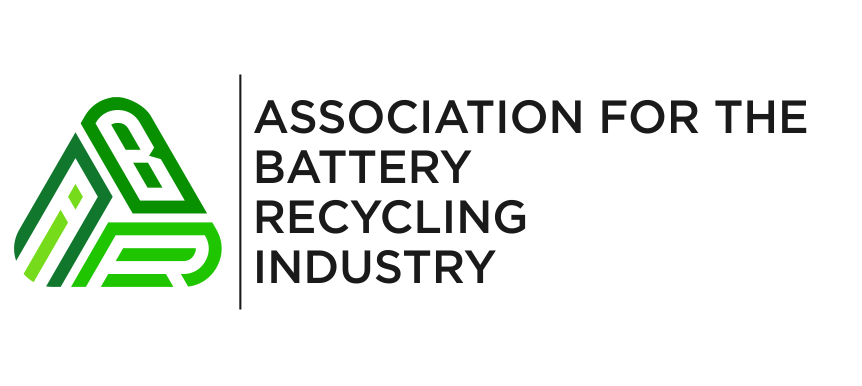10 September 2024
1. Economic analysis of [mandatory] battery stewardship options for end 2024 Environment Ministers meeting
Work is underway to quantify the costs and benefits of different battery stewardship options, including mandatory options. Marsden Jacob is undertaking this analysis, which will inform the development of a draft regulatory impact statement by December 2024. Environment Ministers are expected to discuss options for reducing battery fire risks in waste facilities at their end year meeting.
The Batteries Market Profile and Economic Analysis is covering all batteries and will undertake this analysis using the EU’s five battery categories - portable batteries (≤5kg), LMT (≤25kg), SLI, Industrial (a very broad definition) and EV. Further information is available in the project summary.
The focus is on reducing fire risks and improving battery management across the lifecycle including disposal, design and storage.
Marsden Jacob is reaching out directly to some ABRI members to discuss this project and seek data on costs and the battery market.
2. Presentation pack and notes from Improving lithium ion battery safety management - 2 Sept
The presentation from ABRI member, Mendham Consultants, on Improving lithium ion battery safety management - gaps in current framework and prioritising improvements is now available.
The slide pack includes:
Slides from the presentation
Literature review bibliography - a great list of references
Update Queensland Guideline for Waste Stockpile Fires
Queensland has updated its Guideline for Waste Stockpile Fires, September 2024.
The Department of Environment, Science and Innovation (the department) consulted earlier in 2024 on changes to the Guideline. The Department advises it received multiple submissions regarding the proposed revision of the Guideline. Many of these submissions expressed concern about potential cost implications associated with the revised guideline, particularly for small local governments. There was also a general level of uncertainty about the availability of necessary expertise. In response to this feedback, the Department has decided not to proceed with the proposed revision of the guideline.
Instead, the Department has undertaken a minor update of the existing guideline to ensure its continued relevance and usability. Changes in this update include the amendment of legislative references and source documentation. A minor content update has also been included to make the guideline explicitly relevant for all stockpiles at waste facilities (rather than only waste stockpiles).
3. Update - WA ewaste Ban commenced 1 July 2024
The WA Department of Energy, Water and Resources has asked ABRI to pass on this message:
On 1 July 2024, the Government of Western Australia’s e-waste to landfill ban came into force across the state.
The Waste Avoidance and Resource Recovery (e-waste) Regulations 2024 (the Regulations) prohibit the disposal of regulated e-waste to landfill by e-waste service providers, significant entities and landfill operators.
What is regulated e‑waste?
Regulated e‑waste means the e‑waste categories described in Schedule 1 of the Regulations. Categories and items include but are not limited to:
screens, information technology and telecommunications equipment
lighting and lamps (e.g. tube fluorescent lamps, LED products, household ceiling or desk light globes)
large appliances used in home, office or professional environment (e.g. dishwasher, washing machines and dryers, ovens, rangehoods, large dispensers such as ticket vending machines)
batteries – all batteries except embedded batteries
temperature exchange equipment (e.g. air conditioners and white goods such as freezers)
medical devices (large) that would not, because of their shape or size, fit into a container measuring 50 cm x 50 cm x 50 cm.
How may the ban relevant be relevant to ABRI members?
The Regulations create obligations for significant entities, which are defined as a business entity or a public entity, that in relation to any financial year-
has 200 or more full-time equivalent employees at the beginning of the financial year; or
created, during the immediately preceding financial year, five or more tonnes of regulated e-waste.
Please note that related entities, as defined as related bodies corporate under the Corporations Act 2001 (Commonwealth) section 9, are taken into account when determining whether a business entity is significant entity.
Employees residing outside of Western Australia should not be considered when determining significant entity status.
Fact sheets
The Department of Water and Environmental Regulation has published fact sheets to provide information about the regulations. Topics covered include the responsibilities of significant entities and how to estimate the weight of e-waste for record keeping or reporting purposes.
Where can you get more support?
If you need further information about data reporting requirements under the Regulations, please email the Waste Data team.
4. ABRI - Building the industry’s voice
29 October - ABRI CEO, Katharine Hole joining a panel on The Value in Re-mining Mining Waste - Batteries, Solar Panels and Tyres as part of the Mining, Minerals and Circular Economy stream at IMARC 2024 (Sydney)
